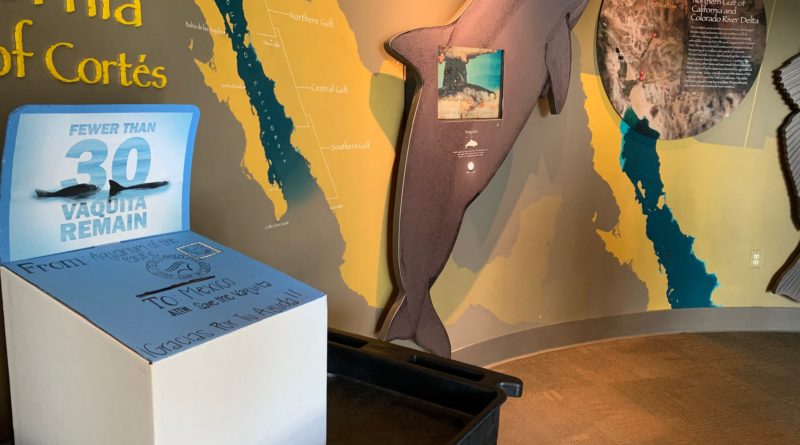Mexican Navy: 1 injured in clash near vaquita reserve
MEXICO CITY (AP)—Mexico’s president said Friday he regrets a confrontation between fishermen and marines trying to prevent the illegal fishing that has driven the vaquita porpoise to the brink of extinction.
The Mexican Navy said at least one fisherman was shot when a marine’s rifle accidentally discharged, and fishermen say two more people were slightly wounded in subsequent protests on Thursday.
It was the highest casualty toll yet in a long-running confrontation between environmentalists and fishermen angry over lapsed government support payments that were meant to compensate them for income they lost because of a total ban on gill nets.
“Yesterday there was unfortunately a confrontation, I very much regret it,” President Andres Manuel Lopez Obrador said, adding that he has been discussing the situation in the Gulf of California for several days with top officials.
Fishermen in the community of San Felipe set illegal nets to catch Totoaba fish, whose swim bladder is considered a delicacy in China. The nets also drown vaquitas, a small porpoise that lives only in the Gulf – also known as the Sea of Cortes – of which perhaps as few as 10 remain.
The only force effectively protecting the vaquita are two boats operated by environmentalist organization Sea Shepherd, which go out daily to haul in illegal nets.
Because the nets coast about $3,000 apiece, in recent months the fishermen have launched increasingly violent attacks on the larger Sea Shepherd vessels, to try to run them off or take back seized nets.
Because Mexico’s Navy has tried to avoid confrontations, the fishermen have become increasingly bold.
That set the stage for the March 28 clash, which basically started as a chase when an illegal fishing boat tried to grab its nets back from the Sea Shepherd vessel Sharpie.
Sharpie “was attacked by a boat that was trying to recover illegal nets,” the Navy said in a statement. “After taking back their nets, the boat fled back to San Felipe, Baja California.”
A Navy boat and land patrol truck pursued the small open fishing boat. Because area’s shores are often broad, flat and shallow, illegal boats often motor up to waiting boat cradles towed by pickup trucks that drive onto shore to pick them up and flee.
This time, however, “Marines carried out vehicle maneuvers to try to capture the boat and detain the culprits. But during these maneuvers the Navy vehicle was hit.” Photos from the scene showed the pickup towing the boat had hit the back of the Navy patrol truck. A melee ensued as shouting fishermen surrounded and confronted the marines.
“The presumed culprits put up resistance and scuffled with Navy personnel, with the unfortunate result that a firearm accidentally discharged, wounding one person,” The Navy said. “This drew a larger group that attacked the Navy personnel, who withdrew to avoid a confrontation.”
Sunshine Rodriguez, a leader of the fishermen in San Felipe, said the wounded fishermen were in serious condition at a hospital. He said two other local residents were slightly wounded by gunfire when residents confronted marines at a subsequent protest. Rodriguez said both of the wounded had been treated and released for non-life-threatening injuries.
Rodriguez acknowledged that starting on March 23, fishermen had decided to violate a total ban on gillnet fishing in the area, in part because the government had stopped making compensations payments in November, before Lopez Obrador took office Dec. 1.
“This was a time bomb that was set up by the previous administration,” Rodriguez said. “They know that we don’t have the means to survive more than three months without payment.”
Rodriguez said fishermen want net-fishing re-opened in the 80 percent of the vaquita’s habitat, where the porpoise has been sighted in years. He called on the government to hire the remaining fishing boats to carry out permanent patrols in the remaining 20 percent of the reserve where the last few vaquitas have apparently gathered.
Experts say that gill nets have to be permanently banned in the area if there is any hope for the vaquita and the totoaba – itself an endangered fish – are to survive.


